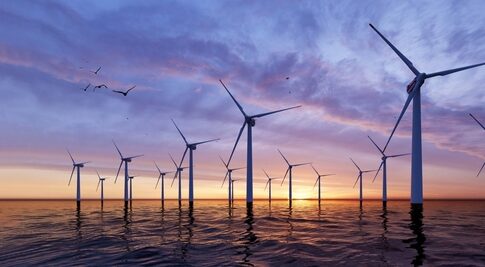In a significant blow to the Biden administration's aggressive push for renewable energy, an offshore wind farm, which had been fast-tracked for approval, has been forced to shut down after a turbine collapse. This incident raises serious concerns about the reliability and financial viability of such projects.
The Biden administration has been fervently promoting the development of offshore wind energy as part of its broader climate agenda, aiming to deploy 30 gigawatts of offshore wind energy by 2030. This ambitious target involves multiple projects along the East Coast, each intended to generate substantial clean energy and create numerous jobs.
CLEAN ENERGY!
Nantucket lifeguards forced to clean up massive chunks of debris from a damaged offshore wind farm.
(Photos: @ACKCurrent) pic.twitter.com/QD3MpqINh7
— The Maine Wire (@TheMaineWire) July 17, 2024
However, the recent turbine failure highlights the potential risks associated with these rapid expansions. The turbine's collapse has not only halted operations at the wind farm but has also triggered safety and financial concerns. The Bureau of Ocean Energy Management (BOEM) had previously granted waivers for financial assurances required for decommissioning costs, which now leaves taxpayers potentially liable for the cleanup if the companies fail to manage these responsibilities.
This incident is not an isolated issue but part of a broader challenge faced by the offshore wind industry. Financial struggles have been noted across several projects, raising doubts about the sustainability and economic sense of continuing such aggressive buildouts without stringent oversight and financial safeguards.
🚨World’s largest offshore wind farm…
Solar Energy Corporation Of India (SECI) has floated tenders for allocation of sea bed lease rights for 4,000 MW offshore wind farm off the coast of Tamil Nadu…#OffShore #India ⚡️ pic.twitter.com/b7CvbHobbC— Chennai Updates (@UpdatesChennai) June 22, 2024
The Biden administration's policies have aimed to invigorate the American economy through significant investments in infrastructure and renewable energy. The Department of the Interior has approved several major offshore wind projects, including the Sunrise Wind and Ocean Wind 1 projects, which together promise to power hundreds of thousands of homes and create thousands of jobs . However, these projects are also under scrutiny for the waivers granted and the potential long-term liabilities they might impose on taxpayers.
Proponents argue that these projects are crucial for reducing carbon emissions and combating climate change. They highlight the potential for job creation in manufacturing, construction, and shipbuilding, which could stimulate economic growth in coastal communities. Critics, however, point to incidents like the turbine collapse as evidence that the administration's rapid pace might be compromising safety and financial prudence.
The debate over offshore wind energy's future is intensifying, with significant implications for the administration's climate policies and economic strategies. Ensuring that projects are both environmentally and financially sustainable will be crucial for maintaining public support and achieving long-term goals.
The recent turbine failure serves as a stark reminder of the challenges ahead. As the Biden administration continues to push forward with its renewable energy agenda, it will need to address these vulnerabilities to prevent further setbacks and ensure that the transition to clean energy is both secure and economically sound.

